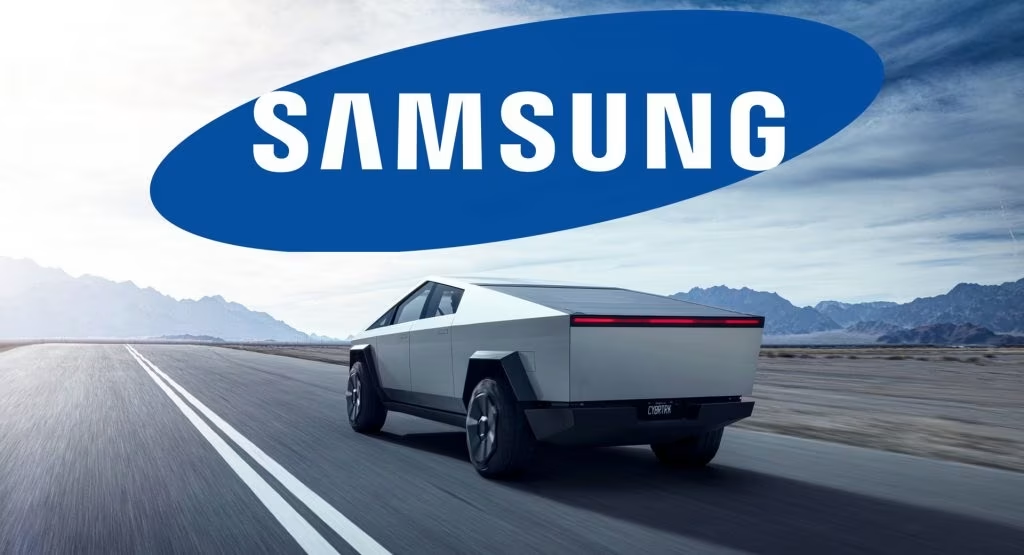Samsung Secures Massive $16.5 Billion Chip Deal, Tesla Speculation Mounts
As of the latest reports on July 28, 2025, the semiconductor world is buzzing with news that Samsung Electronics Co. has landed a monumental $16.5 billion (22.8 trillion won) contract to produce chips for an undisclosed global corporation. This isn't just any deal; it's a multiyear agreement that has sent ripples through the market, causing Samsung Electronics' shares to climb by a solid 3.5%. While Samsung hasn't officially named its client, industry insiders and analysts are largely pointing their fingers at one particular electric vehicle and AI powerhouse: Tesla.
This isn't just a win for Samsung; it's a significant development for the entire tech landscape, especially for autonomous driving.
The Landmark Deal: A Shot in the Arm for Samsung Foundry
The sheer scale of this $16.5 billion commitment is what truly grabs your attention. It represents a substantial boost for Samsung's contract semiconductor manufacturing arm, known as Samsung Foundry. For years, Samsung has been working hard to expand its foundry operations, aiming to compete more aggressively with the likes of TSMC, the undisputed leader in chip fabrication. Securing a contract of this magnitude suggests a major validation of their technological capabilities and production capacity.
Think about it: $16.5 billion. That's a serious investment from the client, indicating a deep, long-term partnership. It's not just a one-off order; we're talking about a multiyear commitment, reportedly stretching until 2033. This kind of stability is gold in the highly cyclical and capital-intensive semiconductor industry. It allows Samsung to plan investments, optimize production lines, and allocate resources with much greater certainty. This is precisely the kind of anchor client Samsung has been seeking to solidify its position in the competitive foundry market.
Why Tesla? The FSD Chip Connection
So, why is everyone so convinced Tesla is the mystery client? The speculation isn't baseless. Rumors have been swirling for a while about Tesla's need for advanced, custom silicon for its ambitious Full Self-Driving (FSD) technology. Tesla designs its own AI chips, and they need a reliable, high-volume manufacturing partner capable of producing these complex processors at scale.
Tesla's FSD system is incredibly data-intensive, requiring immense processing power to interpret real-time sensor data, make split-second decisions, and navigate complex environments. This isn't something off-the-shelf chips can handle efficiently. They need custom-designed silicon, optimized for their specific AI algorithms. Samsung, with its advanced process technologies (think 5nm or even 4nm nodes), is one of the very few foundries globally that can meet such stringent requirements. The multiyear nature of the deal also aligns perfectly with Tesla's long-term vision for autonomous vehicles, which is, let's be honest, a marathon, not a sprint. This partnership could accelerate the development and deployment of Tesla's FSD technology, potentially leading to quicker advancements in autonomous vehicles than many expect.
Samsung's Strategic Play: The Texas Fab and U.S. Expansion
This deal also has significant implications for Samsung's broader strategic goals, particularly its investments in the United States. As I've mentioned before, Samsung has been pouring billions into expanding its chip manufacturing facilities in Texas. There were even reports of delays for their $44 billion Texas chip fab due to a perceived lack of customers, which, if true, highlighted the intense competition in this space.
This new $16.5 billion contract changes that narrative entirely. It provides a clear, massive customer for their U.S. operations, validating their strategy to build out a robust foundry presence stateside. This isn't just about manufacturing; it's about supply chain resilience, geopolitical considerations, and fostering innovation closer to key markets. For the U.S., it means more high-tech jobs and a stronger domestic semiconductor ecosystem, which is a national priority right now. It's a win-win, really. Samsung gets a major client, and the U.S. gets a boost in its semiconductor ambitions.
Broader Market Implications and What's Next
This partnership isn't just big for Samsung and Tesla; it's a bellwether for the entire semiconductor and automotive industries. It underscores the increasing reliance of automakers on custom, high-performance silicon for their advanced features, especially autonomous driving. We're likely to see other automakers and tech companies scrambling to secure similar long-term foundry partnerships to ensure their own supply chain stability and technological edge.
The deal could also influence the competitive dynamics between Samsung and TSMC. While TSMC remains dominant, Samsung is clearly making strides, especially in securing high-profile, cutting-edge clients. This is a long game, and Samsung is showing it's in it to win. What does this mean for the future of autonomous vehicles? Well, with a stable supply of advanced FSD chips, Tesla can push the boundaries of its technology even further. We might see faster iterations, more robust performance, and perhaps even a quicker path to widespread autonomous capabilities. It's an exciting time to be watching this space. The implications for technology development, economic growth, and market dynamics will be closely watched by industry observers and stakeholders alike.
